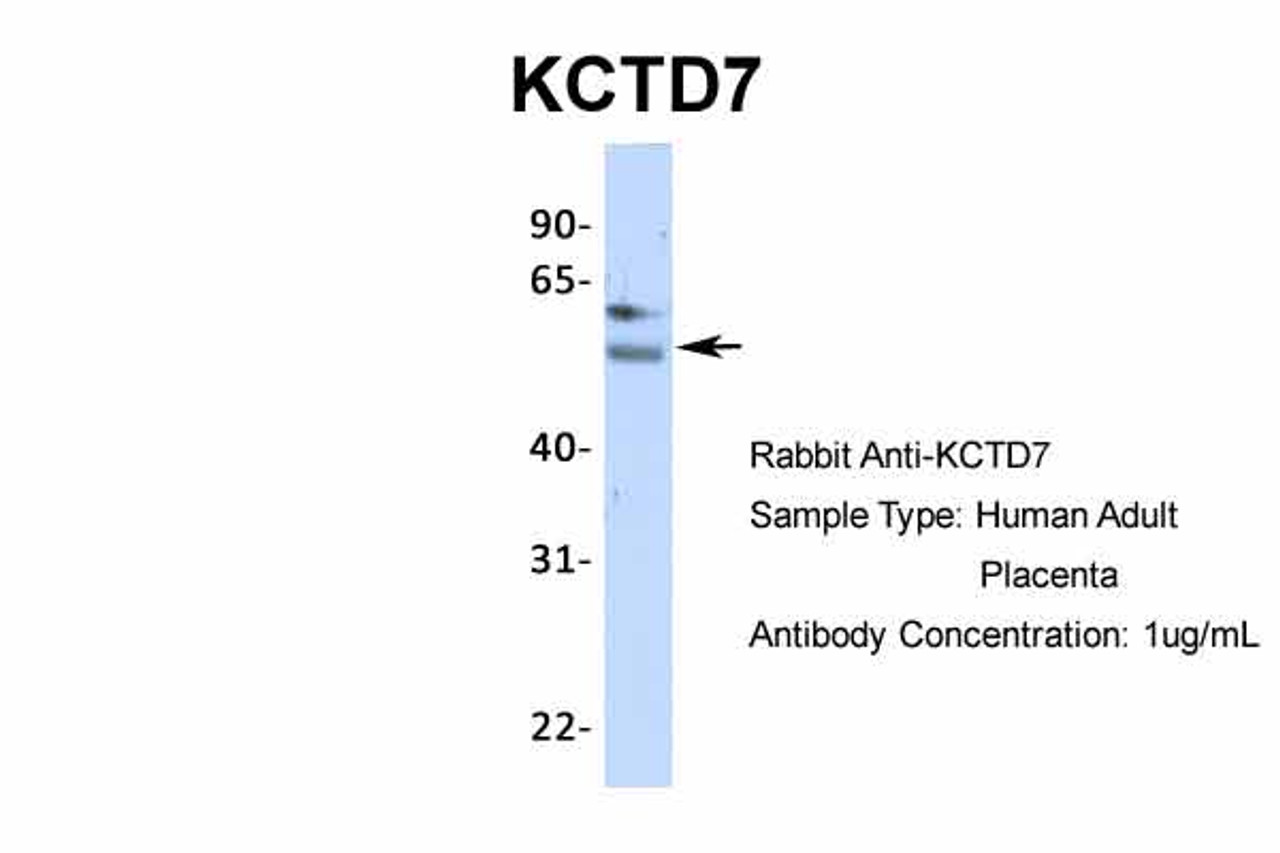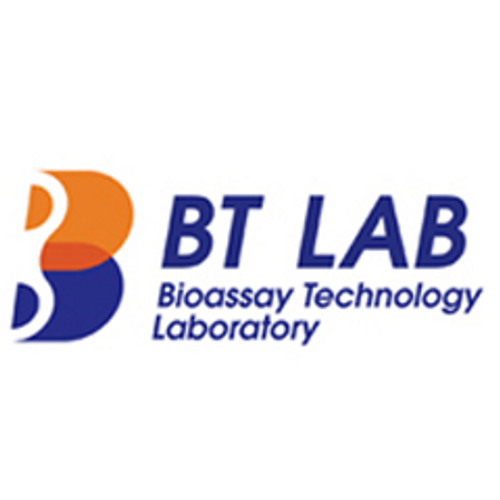Product Description
KCTD7 Antibody | 25-260 | ProSci
Host: Rabbit
Reactivity: Human, Mouse, Rat
Homology: N/A
Immunogen: Antibody produced in rabbits immunized with a synthetic peptide corresponding a region of human KCTD7.
Research Area: Membrane
Tested Application: E, WB
Application: KCTD7 antibody can be used for detection of KCTD7 by ELISA at 1:62500. KCTD7 antibody can be used for detection of KCTD7 by western blot at 1 μg/mL, and HRP conjugated secondary antibody should be diluted 1:50, 000 - 100, 000.
Specificiy: N/A
Positive Control 1: Tranfected 293T Cell Lysate
Positive Control 2: N/A
Positive Control 3: N/A
Positive Control 4: N/A
Positive Control 5: N/A
Positive Control 6: N/A
Molecular Weight: 33 kDa
Validation: N/A
Isoform: N/A
Purification: Antibody is purified by peptide affinity chromatography method.
Clonality: Polyclonal
Clone: N/A
Isotype: N/A
Conjugate: Unconjugated
Physical State: Liquid
Buffer: Purified antibody supplied in 1x PBS buffer with 0.09% (w/v) sodium azide and 2% sucrose.
Concentration: batch dependent
Storage Condition: For short periods of storage (days) store at 4˚C. For longer periods of storage, store KCTD7 antibody at -20˚C. As with any antibody avoid repeat freeze-thaw cycles.
Alternate Name: KCTD7, FLJ32069, EPM3, CLN14
User Note: Optimal dilutions for each application to be determined by the researcher.
BACKGROUND: The KCTD gene family, including KCTD7, encode predicted proteins that contain N-terminal domain that is homologous to the T1 domain in voltage-gated potassium channels (see KCNA1; MIM 176260) . KCTD7 displays a primary sequence and hydropathy profile indicating intracytoplasmic localization. EST database analysis showed that KCTD7 is expressed in human and mouse brain.The KCTD gene family, including KCTD7, encode predicted proteins that contain N-terminal domain that is homologous to the T1 domain in voltage-gated potassium channels (see KCNA1; MIM 176260) . KCTD7 displays a primary sequence and hydropathy profile indicating intracytoplasmic localization. EST database analysis showed that KCTD7 is expressed in human and mouse brain (Van Bogaert et al., 2007 [PubMed 17455289]) .
 Euro
Euro
 USD
USD
 British Pound
British Pound
 NULL
NULL
















